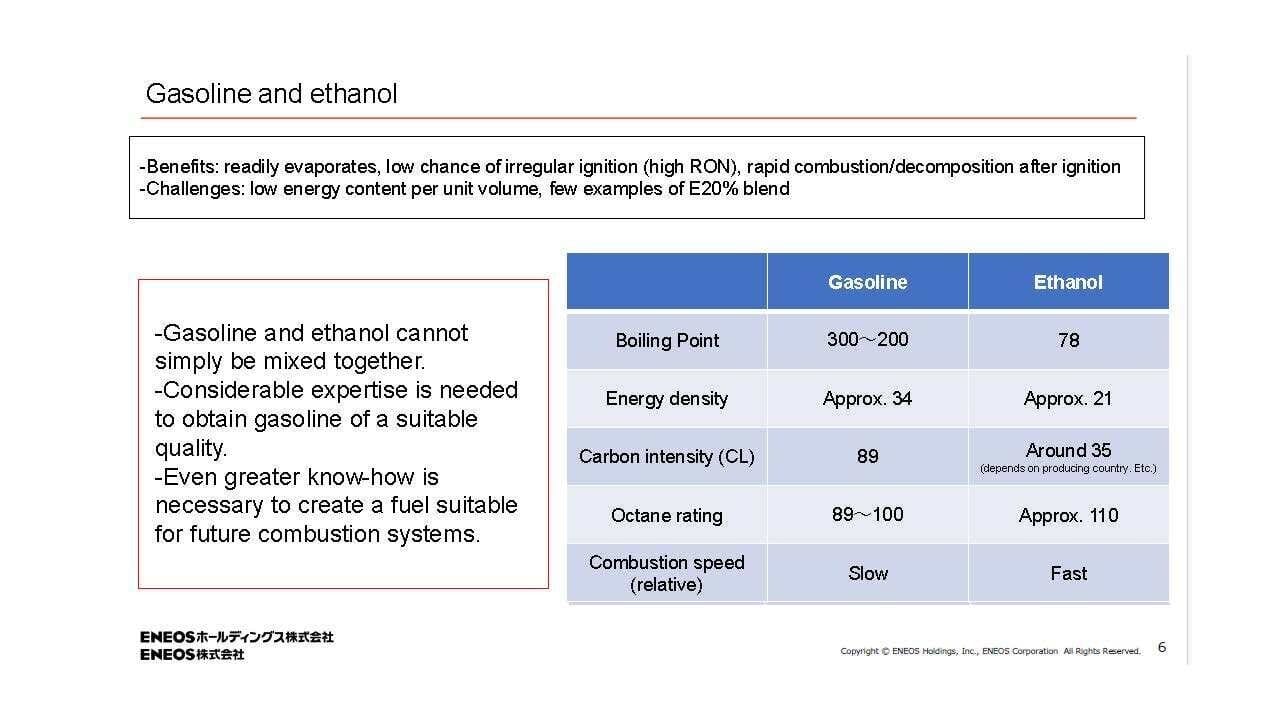Japan's new grassoline sounds ace, just not for your wallet

Let’s cut through the hype on carbon-neutral petrol. It's a brilliant corporate strategy and a cool piece of engineering – but an affordable way to run your weekend car?
I doubt it.

It’s no surprise that Japan’s auto giants are collaborating on this. It's a textbook defensive play to protect a century's worth of investment in the internal combustion engine!
By creating a 'green' fuel – effectively a new take on ethanol – they can lobby to keep building the cars they've perfected, all while the wider world goes electric. This is about corporate survival and protecting bottom lines, plain and simple.
We shouldn't fall for the romantic notion that any sort of widespread use in motorsport will make it cheap for the street. A race team’s goal is performance at any cost; your goal is to fuel the car at a very finite cost. Those objectives are polar opposites.
The real purpose of proving it on the track is to build a high-performance image that justifies a sky-high price tag when it eventually launches. It’s a marketing play, not a cost-reduction strategy – so the fellas buying the fuel will be those with either no greater priorities, or a 911 GT3 RS and the disposable income that gave it to them.



Images from Japan's Ministry of Economy, Trade and Industry as provided by ENEOS CTO Yuichiro Fujiyama.
The maths is brutally simple. Developing an entirely new industrial process to turn grass and woodchips into high-grade fuel is monumentally expensive.
That’s because – and ENEOS admits this – turning grass and wood into petrol isn’t simple. The cellulose that makes up wood is incredibly tough to break down; a cow needs four stomachs to do it, and a factory needs a complex, multi-stage industrial process that burns huge amounts of energy.
That energy input alone makes any claim of being "CO2 neutral" look very optimistic, and that’s before you factor in the fleets of diesel trucks required to haul mountains of this low-density material to the refinery in the first place.
There is just no realistic scenario where the end product is cheaper, or even the same price, as the fossil fuels we use now.
Maybe you're thinking, "Government already subsidise and tax fossil fuel, why can't they just do the same with this new one?"
Because the politics on this, both official and shadowy, are a hundred years old and very deeply embedded. The number of people in industry and politics who benefit from the fossil fuel status quo is immense – even now when it's already being disrupted by EV.
Any significant change to their beloved model would take decades before you saw a shred of benefit at the pump.
Maybe fossil fuel companies could just embrace this new fuel and work it into their existing deals?
You'd be looking at decades of work, lobbying, deal-making, and infrastructure adjustments before you ever saw a shred of tangible benefits at the pump and in your car – and that's assuming no new advancements or problems crop up to turn these very sensitive discussions on their head.
I think it's clear by now that I'm no fuels expert or economist, so this is obviously just my own vibe, but... I reckon this fuel's destiny is to be a boutique, premium product at best.
And really, that'll be fine if you have a dedicated track car. You can tow it to the circuit with the EV you bought for daily duties and fill it with expensive grassoline for a few hot laps – but it’s not going to save your piston-powered daily driver.
Alright, good talk. xoxo.
Here, have another hilarious AI image of a dude heaping grass into his... R8 kinda?

No spam, no sharing to third party. Only you and me.




Member discussion